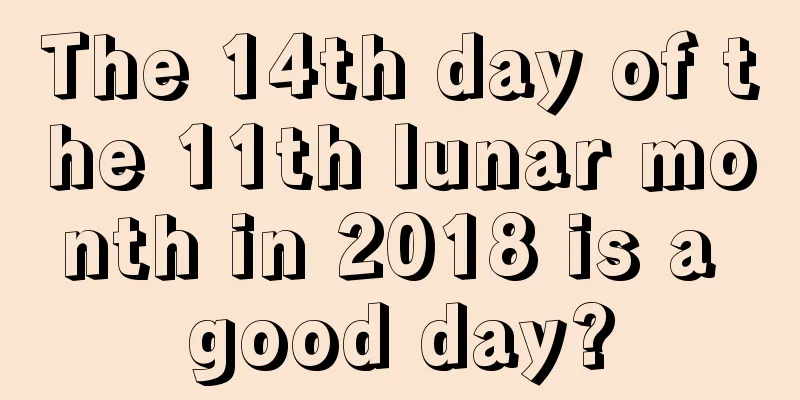What does Laba mean? What is the meaning of Laba Festival?

In a few days it will be the Laba Festival, a traditional Chinese festival. This festival, which has been passed down for so long, is still enduring. So let’s take a look at the meaning of this enduring Laba Festival. In the twelfth month of the lunar calendar, the coldest days of winter arrive as expected. Shuimoxiansheng.com presents you with wonderful content for the twelfth month of the lunar calendar in 2018.What is the meaning of Laba Festival?There are three reasons why the month at the end of the year is called "La": One is that "La means connection", which implies the alternation of the old and the new (recorded in "Book of Sui·Rituals and Etiquette"). The second is "La" which means hunting to obtain animals for offering sacrifice to ancestors and gods. "La" is written next to "meat", which means using meat for "winter sacrifice". The third is "La means to drive away epidemics and welcome spring". Laba Festival is also called "Buddha's Enlightenment Festival" or "Enlightenment Meeting". In fact, it can be said that the eighth day of the twelfth lunar month is the origin of Laba Day. First, the twelfth month of the lunar calendar is the twelfth month, which means the alternation of the old and the new, which is consistent with the explanation of the twelfth month of the lunar calendar. Second, "La" is the same as "Lie", which means hunting to worship ancestors and gods. Third, Laba is the day when Sakyamuni became enlightened in Buddhism. The above three are the meaning of Laba Festival.What are the customs of Laba Festival?1. Drink Laba porridge . There is a custom of eating Laba porridge on the Laba day, which is also called seven treasures and five flavors porridge. The history of eating Laba porridge in my country has been more than one thousand years. It first started in the Song Dynasty. On the eighth day of the twelfth lunar month, people from the imperial court, government offices, temples and ordinary households would make Laba porridge. In the Qing Dynasty, the custom of drinking Laba porridge became even more popular. In the palace, the emperor, empress, princes, etc. would give Laba porridge to civil and military ministers, attendants and palace maids, and distribute rice, fruits, etc. to various temples for the monks to eat. In the folks, every household also makes Laba porridge to worship their ancestors. At the same time, the family gathers together to eat it and gives it to relatives and friends. 2. Laba Festival is originally a day for sacrifice, and some places still retain this custom. The objects of worship include: Shennong, the god of thrift, Houji, the god of agriculture, the god of field officials, the gods of post and field, the people who open roads and draw boundaries, the cat and tiger gods, the gods of the neighborhood, the gods of water, the gods of insects, etc. The element of worshiping Buddha was later incorporated into the Tang and Song dynasties, and Buddhists had the custom of worshiping Buddha on this day. Some areas are very grand. 3. Eating ice: The day before Laba Festival, people usually use steel basins to scoop water to freeze it. When Laba Festival comes, they take the ice out of the basins and break it into pieces. It is said that the ice on this day is magical and eating it will prevent stomachache for the next year. |
<<: Is it possible to move house during Laba Festival in 2019?
Recommend
Can I get a haircut on New Year’s Day? When is the best time to get a haircut?
There are actually some rules for cutting hair. So...
Will colleges and universities be on holiday for National Day in 2020? Do I need to be quarantined when returning to school? Is it a good idea to move on October 2?
Introduction: National Day is a holiday celebrated...
What is the day like on the ninth day of the fourth lunar month in 2021? Can the renovation be started on the same day?
The quality of decoration will be different on dif...
Can I get a haircut on the 28th day of the first lunar month in 2022? Is it unlucky to get a haircut in the first month of the lunar year?
The first month of the lunar calendar is the begin...
Is it a good or auspicious way to open a business on the Dragon Head Festival in 2020? Introduction to the Dragon Head Festival!
Introduction: You also need to choose an auspiciou...
Can I get married on the 13th day of the first lunar month in 2022? Is it an auspicious day for marriage?
Marriage is an important matter that needs to be c...
Is October 19th of the lunar calendar 2019 an auspicious day? Check the auspiciousness and inauspiciousness at 12 o'clock today!
Introduction: Every day has good and bad luck, and...
Is it auspicious to get a haircut on Christmas Eve 2019? When is Christmas Eve 2019?
Introduction: Sometimes you need to choose an ausp...
What is the zodiac sign of a child born on March 20th of the lunar calendar in 2019?
What is the zodiac sign of a child born on March 2...
Is it a good time to start renovation on October 22, 2018 in the lunar calendar? How good or bad?
Auspicious days are a traditional custom in China,...
Is it good to be born on September 22nd of the lunar calendar in 2021? Is this day suitable for caesarean section?
In late September, "the autumn scenery someti...
Is it auspicious to get married on December 20th of the lunar calendar in 2020?
Is it auspicious to get married on December 20th ...
Things to note during the Beginning of Autumn: What are the things you shouldn’t do? Will it affect your fortune?
The Beginning of Autumn is the period when the Yan...
What zodiac sign is a baby born on the fourth day of the twelfth lunar month in 2018?
What zodiac sign is a baby born on the fourth day ...
Is a boy born on the beginning of autumn in 2022 a good person?
Everyone's destiny is different, and even has ...









